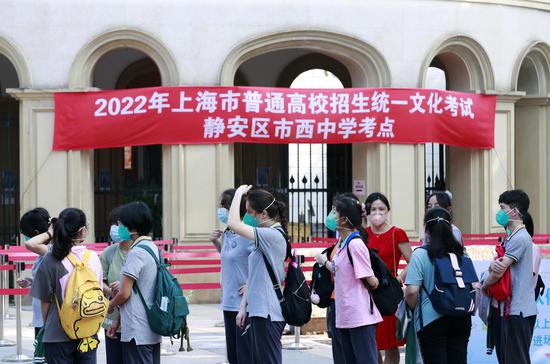
A plane carrying tourists arrives in Dunhuang, Gansu, on April 28. (ZHANG XIAOLIANG/XINHUA)
China's civil aviation sector is implementing the steady and orderly resumption of scheduled international passenger flights to speed up the recovery of the global aviation market, which has been hit hard by the COVID-19 pandemic, the Civil Aviation Administration of China said on Tuesday.
To fulfill the needs of overseas students and people involved in international exchanges looking to return to their home countries, the administration is working under the coordination of the joint prevention and control mechanism of the State Council to carry out the resumption of flights, Xu Qing, deputy director of the administration's Department of Transportation, said at a news conference on Tuesday.
Xu also noted that the effort takes into account the evolving pandemic situation, the optimization of recent prevention and epidemic control measures, and the improvement of the ability of local regions to accommodate international flights.
She added that the CAAC will continue to strengthen communication with other countries to increase the number of international flights.
Liang Nan, director of the CAAC's transport department, said during a news conference last month that the administration is holding discussions with some countries on gradually increasing international passenger flights.
According to China's newly updated COVID-19 control protocol, the ninth edition of which was released on June 28, inbound travelers will be placed under isolation to undergo medical observation at designated sites for seven days followed by three days of home health monitoring, reducing the quarantine time from 14 days to 10 days.
As a result, some airlines released plans this month to add more international flights. China Southern Airlines plans to operate flights between Shenzhen, Guangdong province, and Moscow, Russia, starting on Thursday. Hainan Airlines is about to resume flights between Beijing and Belgrade, Serbia, starting on Saturday.
More international flights are planned between China and other countries, such as Thailand, Mongolia and Kyrgyzstan.
The news excited some potential travelers.
A Beijing resident surnamed Ding said she was happy to learn that China is about to add more international passenger flights to boost the badly hit global civil aviation market, as the 67-year-old is eager to see her 1-year-old granddaughter in New York.
"I have not been able to see my son for three years and never met my granddaughter. My son wanted me to go to New York to take care of the newborn baby last year but it was hard to buy a return ticket then," she said.
Ding decided not to go last year because the return ticket was too expensive, noting that a business class ticket from New York to Shanghai cost about 100,000 yuan last year ($14,870).
She hopes that the resumption of international passenger flights can "bring the market back to normal".
The news will also be welcomed by airline companies.
Data released by the CAAC in August last year showed that China operated 230 international passenger flights every week, about 2.15 percent of the volume seen in 2019.
The international passenger market is a very important source of income to airline companies, especially the larger ones, said Li Xiaojin, a professor of aviation economics at the Civil Aviation University of China in Tianjin.
Before the pandemic, about 10 percent of air travelers were international passengers, but they contributed nearly 30 percent of the sector's revenue, Li said.
He also noted that the resumption of flights in the international passenger market can help airline companies hedge losses from the epidemic and boost the industry's recovery.
Civil aviation expert Yu Zhanfu, partner and vice-president of the China unit at consultancy Roland Berger, agreed. For example, he said that before the pandemic, about 35 percent of income in Air China was from international flights.
"It will be a good move to resume more international flights for companies to gain money. The price for international flights remains high now because of the strong need, such as overseas students' family visits and business trips. Their needs have been repressed in the past few years. When more international flights are provided, seats are expected to be fully booked. High price, and fully booked seats will bring benefits to airline companies," he said.


















































 京公网安备 11010202009201号
京公网安备 11010202009201号